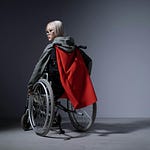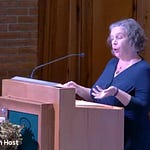Have you been feeling somewhat bleak? Perhaps the chaos and uncertainty all around has led to feelings of powerlessness. Reducing our own stress and anxiety leads to better decision making. And we can do that by performing simple acts of kindness. Not only are we helping others and ourselves, even one act of kindness can create a ripple effect far beyond what we can see.
As I drove through my neighborhood early Sunday I passed an ambulance, with cars pulled over and a group of people on the sidewalk surrounding someone. This wasn’t a car accident; it looked like someone out walking had a medical emergency, and people in cars and others out walking stopped to help and someone called an ambulance.
People helped. There was no assistance I could add, so I continued driving.
Then a little later, on a two lane stretch of road with farmland on one side and woods on the other, I saw trees down in the road, with traffic stopped on the other side. There was a van that spun out on my side of the road. I stopped my car and got out to move the trees out of the road so emergency vehicles – whenever they showed up – could get through. A woman and her daughter also stopped and helped me. A man from a neighboring house came out to help. People were directing traffic.
People helped.
When I saw the headlines on the news this morning I started to spiral into fear and hopelessness. And anger that some people are looking out only for themselves.
Then I remembered what I witnessed the other day: people helped. And people DO help.
There is a ripple effect with kindness and generosity. Kindness spreads. A 2010 study found that one act of generosity can spread to three degrees of separation, meaning when you help someone, they are more likely to help someone else and so on. You unknowingly inspire kindness in people you haven’t met. Because I witnessed kindness in my neighborhood with people stopping to help the person who had a medical emergency, I may have been more inclined to stop and help when I saw the second incident.
And kindness and generosity aren’t just good for the person receiving said kindness and generosity, performing an act of kindness creates happiness and improves physiological health. Studies show that when we help others, our brain’s pleasure centers light up, similar to when we eat our favorite meal or listen to great music. In 2006, neuroscientists found that acts of generosity trigger the brain’s reward system, releasing dopamine and endorphins, creating a natural “helper’s high.” And a 2013 study found that people who engaged in helping behavior had lower stress-related mortality rates.
Bottom line: when we’re kind to others, our stress levels drop, and our bodies feel the benefits.
Looking at this research this morning transformed my fear and bleakness into something that resembles a glimmer of hope. Not only can we bring light into darkness, doing so improves our emotional and physical well-being.
Even in times of great turmoil and uncertainty. A study following volunteers after 9/11 found that those who engaged in relief efforts experienced greater emotional resilience and lower rates of PTSD than those who did not volunteer. And in the 2008 financial crisis, a study found that people who engaged in acts of kindness reported higher life satisfaction, even while they themselves were in financial distress. It turns out, giving—even when resources are scarce and tensions are high—creates a sense of abundance and emotional well-being.
We’re in the midst of chaotic times, with stress levels and fear through the roof. High stress triggers the amygdala, the brain’s fear and emotional center, leading to impulsive and fear-driven decisions. Yet small acts of kindness reduce stress, both for the giver and the receiver and create ripples of the same. A relaxed brain is better at connecting ideas and thinking outside the box. We need out of the box ideas for unprecedented times. The next great idea could come from you.
So here’s my challenge: Find one small way to help someone today, however slight that may seem. Hold a door open, buy a coffee, send an encouraging message. Choose to be a light in this world and you will inspire others to do the same. Shine brightly, my friends. Shine bright with love, compassion, and hope. Be a force for good.
Joni Miller is a writer, researcher, spiritual coach, and speaker who uses her knowledge, education, and love of all things spiritual to help others find their unique spiritual path. www.SpiritualGeography.net












